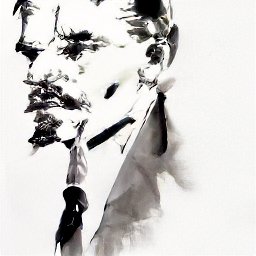I just started The Three-Body Problem and have really been enjoying so far. That being said, the first chapter takes place during a struggle session at a university, where a professor is accused of reactionary thought by teaching Einstein's theory of relativity and the Big Bang Theory by his own accord in an intro physics class.
Is there any historical truth to this sort of backlash, and if so, why? I'm no physicist, but I don't understand how ToR/BBT contradict dialectical materialism.
I had actually totally forgot about that element in the book, but I also wasn't as deep into ML thought and Chinese history when I read it about two years ago.
Criticism of relativity and Einstein himself was a big theme in China, from the founding of the PRC all the way through Deng's reform period.
If I remember correctly these flashback moments in Three Body Problem take place during the Cultural Revolution, puts it right in the middle of this large cultural and academic debate over the theories of relativity.
I just read the abstract of this academic paper but you may be interested in making a Jstor account and skimming the whole paper.
https://www.jstor.org/stable/10.1525/hsps.2004.34.2.311
Ooo thank you for the link. Luckily I have Jstor access through my job so I'll give it a read later.
It's also perfectly alright for the author to criticize the cultural revolution / reign of the gang of four, and it's idealist / anti-science and anti-materialist ultra-leftism. iirc the book later brings that scientist back. The modern CPC also decries that period as a great mistake.
With Deng, science and it's development became a huge emphasis again.
Speaking of, wasn't the Soviet Union against genetic studies until the 80's or something?
I won't claim to be an expert on the history of soviet science, but learning about it through a project definitely was a contributing factor in my radicalization.
The soviet union also had issues with marxist philosophers criticizing relativity. chief among them was Aleksandr Maksimov, but unlike in biology, where charlatans like Lysenko managed to lead a vast majority of soviet scientists against genetics, soviet physicist Vladimir Fock who was also keenly interested in Marxism tied the two together and defended it from critics who tried to exploit anti-idealism to attack real science.
I learned about this through the book Stalin's Great Science. It's written by someone who does admittedly fill the book with libshit(the word "Stalinist" is a must in any Western book about the USSR between 1924 and 1953) but also lived in the USSR and learned physics there, and does seem to have a vague nostalgia for it. It casts a relatively positive view of the role of the USSR in promoting science and provides examples of scientists very contrary to the usual western view of "scientist that didn't like socialism >:(" which is what happens when the only soviet scientist they know is sakharov(which is exactly who my history teacher told me to write more about - I refused). There are a good number of books by relatively western historians like this(for example, this book was published by "Imperial College Press") that actually at least partially serve to disprove many Western myths about the USSR. Another example is Mark Tauger on the topic of the so-called "Holodomor". I really think these are good ways to ease libs into radicalization - just looking at history from a less biased perspective worked wonders for me.
Wasn't Lysenko partially rehabilitated later, especially by Chinese scientists working on his ideas? And accusations of causing the downfall of his colleagues were entirely bull? Still not a figure to wholesalely defend but i wouldn't call him "charlatan".



